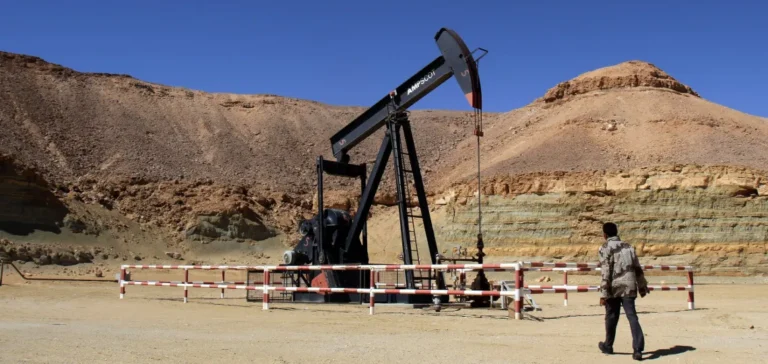Libya’s oil production increased to 1.23 million barrels per day in May, marking its highest monthly level in twelve years. This monthly rise of 30,000 barrels per day follows significant disruptions caused by a conflict over control of Libya’s Central Bank at the end of 2024, which previously halved the country’s output. The current recovery in Libyan production is notably supported by the return of international companies and the reopening of oil fields that had been shut for several years.
Persistent Instability in Tripoli
Despite this remarkable rebound, Libya’s oil sector continues to face major challenges related to persistent political and security instability. Control over oil infrastructure is divided among several rival political factions located in the east and west of the country, frequently causing disruptions. The recent assassination of Abdul Ghani al-Kiklii, known as Gheniwa, a prominent figure of a local militia, heightened security uncertainty, prompting threats from the eastern faction to once again declare force majeure on oil fields and ports.
However, the current tensions have not yet directly affected oil infrastructure or overall production levels. The National Oil Corporation (NOC) recently denied rumors that its headquarters in Tripoli had been stormed by armed men, instead reporting a minor incident stemming from a personal dispute. Nevertheless, the faction led by Khalifa Haftar, influential in the east, continues to discuss the possibility of relocating the NOC’s headquarters to a city considered safer.
Rising Exports and Logistical Challenges
In parallel with increased production, Libya’s crude oil exports reached a multi-year peak of 1.26 million barrels per day. The main buyers of Libyan crude remain Italy, France, the United States, and China. Due to the poor condition of its domestic refineries, nearly all Libyan crude oil is exported, limiting national refining capacity to around 90,000 barrels per day, mainly concentrated at the Zawiya refinery.
The country recently ceased a direct crude-for-imported-refined-products swap system, a change implemented last March. However, payment difficulties persist, causing bottlenecks at Libyan ports and raising the potential for fuel shortages that could trigger civil unrest.
Future Development Prospects
In such a volatile context, Libya nonetheless continues its ambitions to boost its oil production. The country is currently conducting its first bidding round since the fall of Muammar Gaddafi in 2011, aiming to reach a daily production level of two million barrels by 2028. This ambitious goal highlights significant economic stakes for Libya, where approximately 93% of government spending is funded by revenues from the oil sector.
Libya’s situation remains unique, with record oil performance coexisting alongside chronic political and security instability. This paradox draws attention from oil market observers regarding the long-term viability of maintaining production dynamics in such an uncertain environment.






















